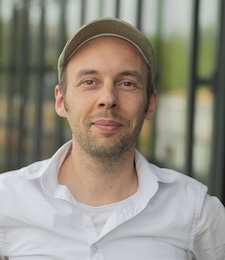Responsibilities
High-Intensity Laser Physics; Machine Learning and Data Science
Contact
Am Coulombwall 1, D-85748 Garching, Germany
Phone:
+49 (0) 89-28914096
Email:
a.doepp@physik.uni-muenchen.de
Website:
http://scholar.google.de/citations?user=luCd6YoAAAAJ
Students welcome!
Hi there! I'm Andreas Döpp, and I lead the DOLPHIN research group (Data-driven Optimization of Laser Physics and Interactions) at the Centre for Advanced Laser Applications (CALA). My team and I are passionate about applying a unique blend of data science, machine learning and physics to tackle challenges in high-power laser physics, especially when data is limited. We focus on two critical questions: How can we reconstruct complex information from sparse data, and how can we achieve optimal performance with the fewest measurements possible?
If you're a physics student excited about the prospect of working at the cutting edge of machine learning and high-power laser physics, the DOLPHIN group offers a unique opportunity to grow as a researcher and make a real impact in the field. Under my guidance, you'll have the chance to contribute to the development of novel techniques that push the boundaries of what is possible in laser-plasma interactions, while gaining valuable experience in interdisciplinary research. If this sounds like the kind of challenge you're looking for, don't hesitate to reach out to me to discuss potential Bachelor's and Master's thesis topics – I'm always eager to work with motivated, talented students who share our passion for innovation.
About me
I am physicist working at the interface of machine learning, optics, accelerator, plasma and laser physics. I currently hold a position as Emmy Noether Group Leader and Lecturer at LMU Munich, while also being a Visiting Scientist at the Max Planck Institute for Quantum Optics and University of Oxford's physics faculty. My group is associated with the Munich Center for Machine Learning (MCML) in the area of Statistical Foundations & Explainability.
I studied physics at RWTH Aachen, EPFL in Lausanne, Université Paris-Sud and Imperial College London. In 2015, I obtained PhDs from École Polytechnique and Universidad de Salamanca, supported by the Marie Curie Initial Training Network LA3Net. My PhD research involved experimental and numerical studies on laser-plasma interactions, laser-based x-ray sources, and accelerator optimization at major laser facilities across Europe. I completed my habilitation in 2024 with my work on "New Frontiers in Laser-Plasma Acceleration: From Plasma Waves to Intelligent Machines".


